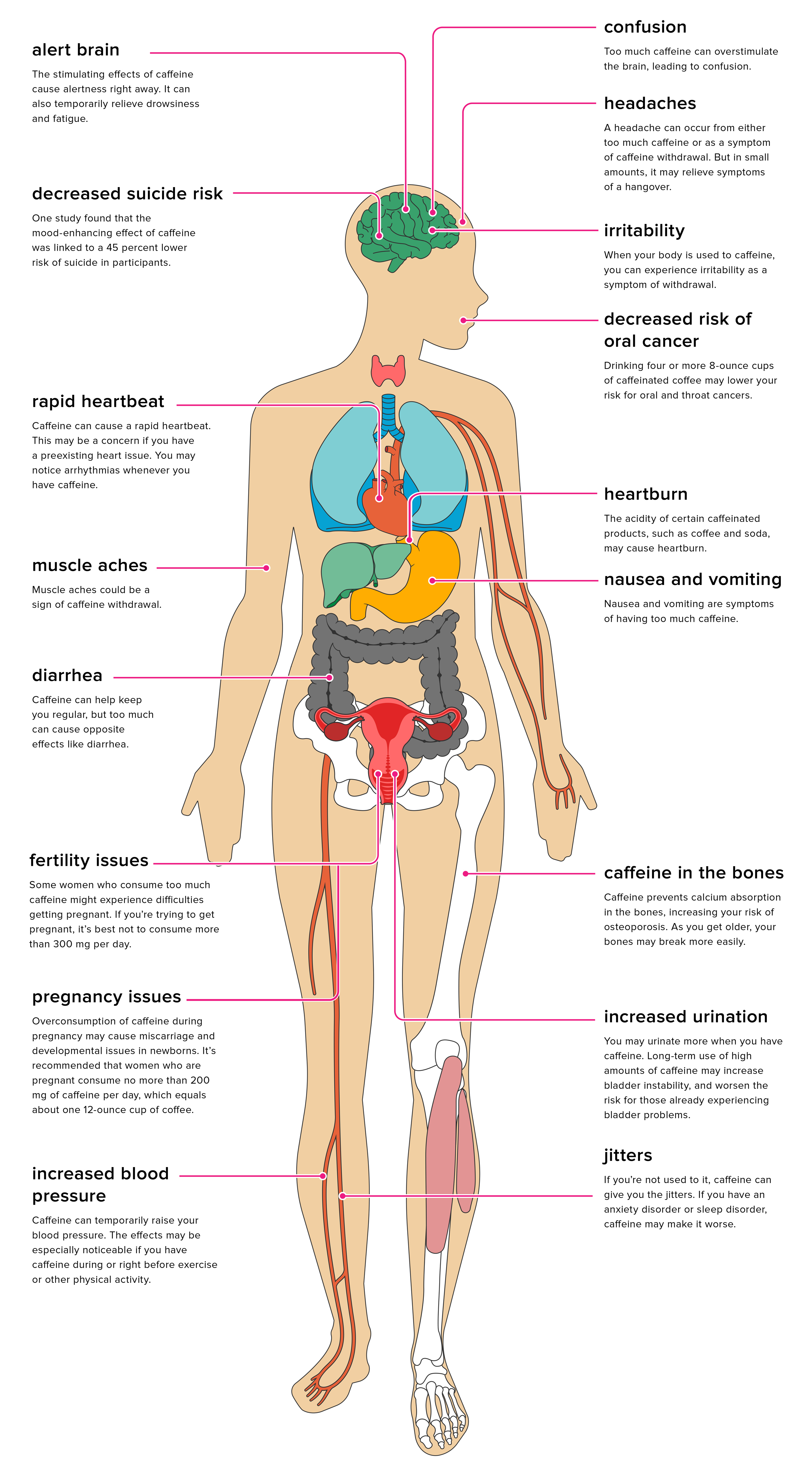
Many of us rely on a morning cup of coffee or a jolt of caffeine in the afternoon to help us get through the day. Caffeine is so widely available that the U.S. Food and Drug Administration (FDA), says about 80 percent of U.S. adults take some form of caffeine every day. But caffeine does so much more than just keeping you awake. It’s a central nervous system stimulant that affects your body in numerous ways.
Knowing the symptoms of caffeine and its long-term effects on your body may make you think twice about having that fourth cup of coffee. Read on to learn more about these effects.

Caffeine provides no nutritional value on its own. It’s tasteless, so you won’t necessarily know if it’s in your food either. Even some medications may contain caffeine without your knowledge.
This ingredient almost always causes some symptoms. At a minimum, you may feel more energetic, but over time, too much caffeine may cause withdrawal symptoms. According to the Mayo Clinic, it’s safe for most healthy adults to consume up to 400 milligrams of caffeine per day. Keep in mind that a standard size cup of coffee is eight ounces. If you’re using a mug or getting your fix at a coffee house, chances are you’re drinking 16 ounces or more, so reading labels is important.
As you consume the same amount of caffeine on a daily basis, your body develops a tolerance to it. Other factors like your age, body mass, and overall health can determine your tolerance to caffeine, too. If you want to decrease the amount of caffeine you take, it’s best to decrease your consumption slowly.
Digestive and excretory systems
Caffeine increases the amount of acid in your stomach and may cause heartburn or upset stomach. Extra caffeine doesn’t get stored in your body either. It’s processed in the liver and exits through your urine. This is why you might have an increase in urination shortly after having caffeine.
If you have experience stomach problems, like acid reflux or ulcers, ask your doctor if it’s okay for you to have caffeine.
Reproductive system
Caffeine travels within the bloodstream and crosses into the placenta. Since it’s a stimulant, it can cause your baby’s heart rate and metabolism to increase. Too much caffeine can also cause slowed fetal growth and increased risk of miscarriage. In most cases, a little caffeine is safe during pregnancy.
According to the Mayo Clinic, you should limit caffeine consumption between 200 and 300 milligrams per day if you’re trying to get pregnant. There’s some evidence that large amounts of caffeine can interfere with the estrogen production and metabolism needed to conceive.











0 comments:
Post a Comment